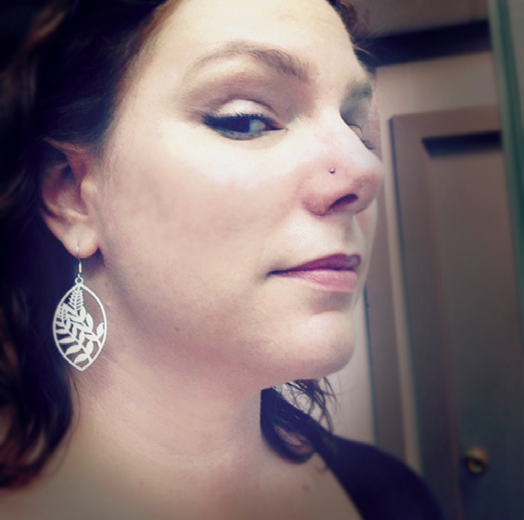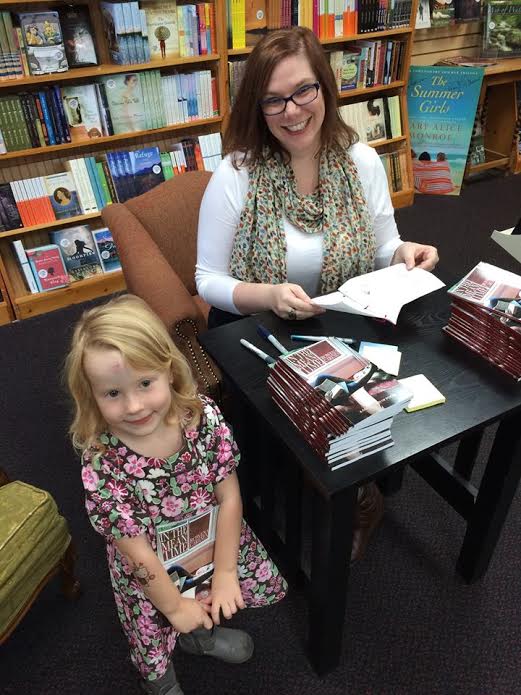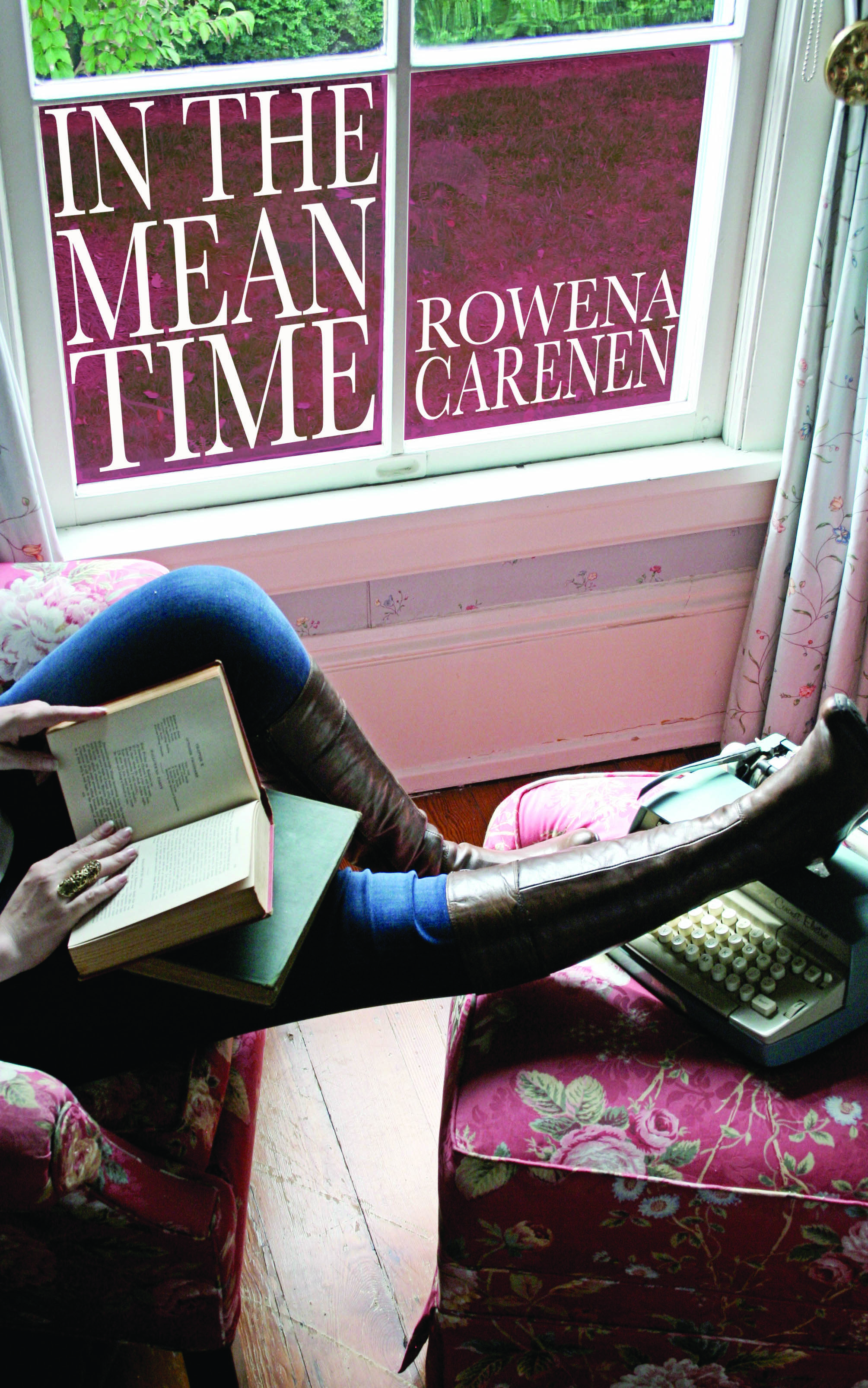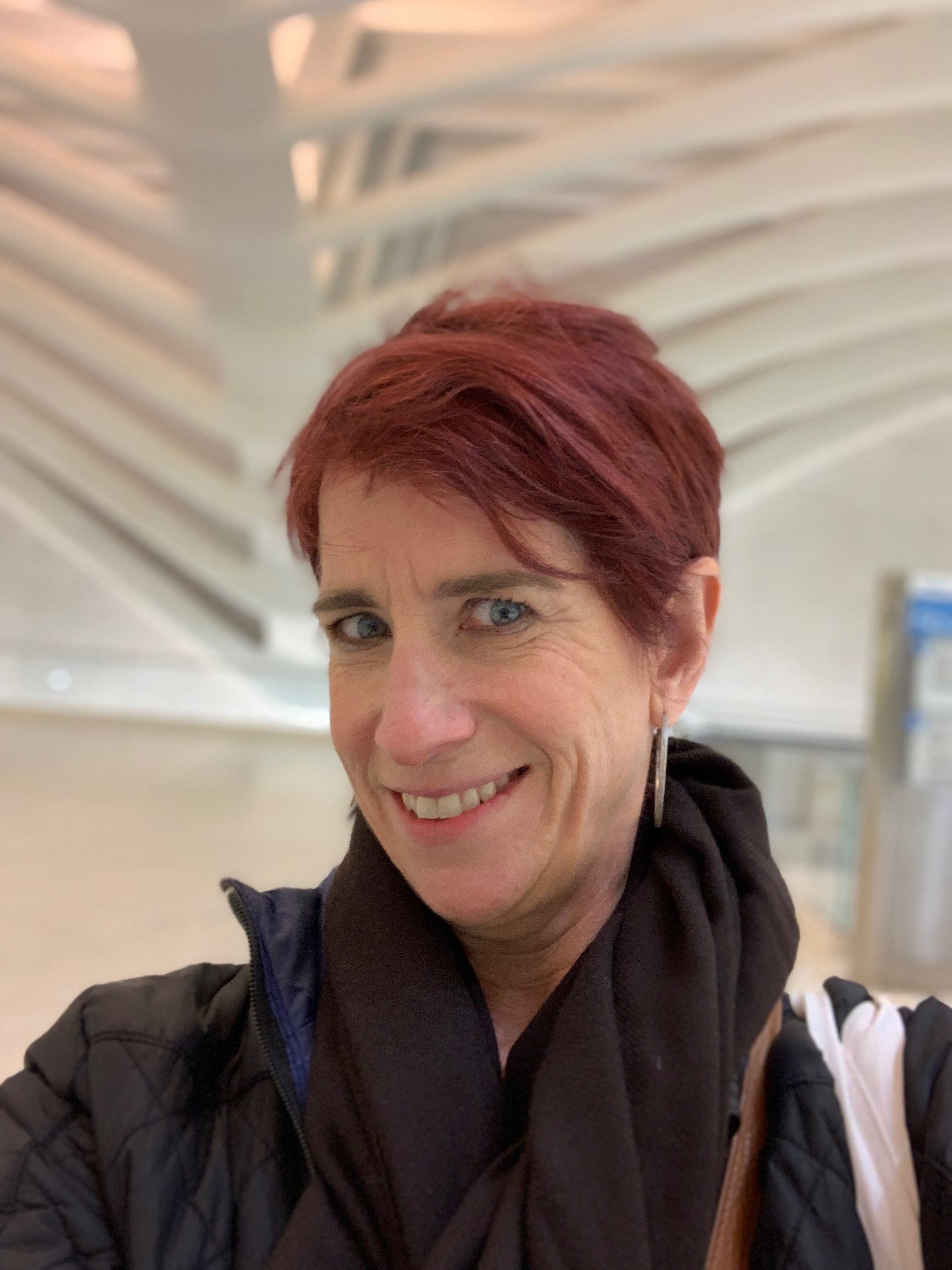
Rowena Carenen Copeland
In an age when most writers are expected to do almost all of their own publicity and marketing, Rowena Carenen Copeland is what just the doctor ordered. As the founder of The Book Concierge, Copeland helps writers all across the country manage tours, signings, social media and so many of the other things that steal time from what they do best – writing! I sat down with her recently to talk about what a book concierge does and her own published works of poetry.
RE: For those who might not know, explain what a book concierge does.
Copeland: It starts from the pretty basic idea that I love books. I went to college and graduate school and as hard as they tried to stop my love of books by having to read things that were terrible all the time, it just kept getting bigger. And then my father, John Carenen, had the first book in his mystery series about to come out. He’s from a small press and they didn’t have a marketing or PR budget, and he didn’t know anything. He didn’t know that he needed to launch the book or that there needed to be signings or that you should have a presence on social media. There were all kinds of things that didn’t occur to him because he’s a writer, and that’s where his mind was. So I helped him set up a blog, I organized a book launch at our local indie bookstore, Fiction Addiction, and several other signings in libraries and things like that. I did it because, one, he’s my dad but also because his book is fantastic and it needed to be in the hands of more people. But he couldn’t worry about those things because he was already writing book number two. So I started thinking about what I could do to help authors with the business of being a writer. Now I like to say when I’m doing my elevator pitch that the work that I do allows my authors to just be a writer. The writers write and I handle everything else. And as the literary world has changed, so has my job description. It’s forever evolving. I like learning new skills and growing as much as I can so that they can reach a wider audience.
RE: How many writers do you work with?
Copeland: That varies. Sometimes I just a do a three month, ‘let’s get this book out there, set up a tour and be done with it’ gig. Other times it’s ongoing. David [Burnsworth] and I have been working together since before Southern Heat came out. I have some clients that I teach some skills so that they can manage things on their own. Sometimes that’s one month of how social media works, or how you write a press release. I often get hired to do research, so researching local book clubs and libraries and contest and festivals that would be interested in the kind of work that each individual author has. So at the moment I’m working with eight clients. It was nine last week but we finished our project and we’re moving on. So it depends on when you catch me.
RE: You’re based in South Carolina. Are most of your clients east coast or are they everywhere?
Copeland: They’re all over the United States. Right now I’m working with a historical fiction author in California. Wendy Tyson, who is not only an incredible writer but also a very good friend, is in Philadelphia. I have a client in Hawaii. So it just kind of depends. Actually, one of the best things about my job is it doesn’t really matter where I live or they live, because most of what I do can be done remotely and virtually.

Rowe and Molly
RE: Is it hard when you’re setting up a tour in area you don’t know well?
Copeland: I like to think that despite the fact my work is for the most part done remotely, I still build good relationships with book sellers and librarians. It’s taken years, but they trust my recommendations because I’m very particular about my clients. And I call them, I talk to them. I don’t just send emails or a Facebook message. I call. I know where their daughter is going to go to college. I know they just put down their dog of 13 years. So you build a relationship. It’s the kind of relationship that spans, hopefully, many, many years, and they understand that what I want is not just a successful book for my authors but what works for them. What do their patrons enjoy? Every bookstore is different and therefore every event should be tweaked or managed a little differently depending on where we are. I think that makes a big difference. I will say, when I first started I learned a lot very quickly. Advertising is great, all those things are very helpful, but a lot of it also depends on the author engaging and with the bookstore being willing to take a chance on someone they don’t know yet. I work primarily with indie authors or authors from small presses. A lot of them are new names and that means the store has to take a chance on setting up an evening event or blocking out part of the store in the afternoon for an author they’re not familiar with. That kind of relationship needs to be built so that it doesn’t feel like it’s one of those computer generated calls of, ‘can I interest you in a client of mine?’ It needs to be, ‘Hey Jill, how’s it’s going? What’s going on with your dad? Oh, you have his second book, that’s fantastic. Thank you so much for hosting David when we launched the first book, do you think we can do the second book launch at your store? Great, let’s talk about that.’
RE: Authors need to understand that relationships are the way of the world.
Copeland: They do. And I think what’s difficult is so many authors are introverts. They tell their stories so that they don’t have to talk their stories. They write them instead. I thoroughly enjoy David – he is incredibly kind and funny and smart and just absolutely a delight to work with – but I had to have a conversation with him several years ago about book signings. I told him you have to say things like, ‘excuse me do you like mysteries?’ Because you’re there doing a signing. You’re not doing a Q&A. This is the South, they will smile at you and keep walking. So I told him that when somebody walks by, he needed to say, ‘hey I was just wondering, do you like mysteries? Oh yeah? Well this is my first mystery, and it’s set locally in Charleston.’ Just start a conversation. Because in the end, you are building a relationship, and when you build a relationship with your readership they follow you anywhere. And that really matters, because honestly what sells books more than anything I do or anything any author does is if somebody finds a book they love, they tell somebody. And they are more inclined to love a book and read the next one if they feel like they can have a relationship with the author, or even with the characters, especially in a series. That matters. So I’m always telling my clients and anybody who will listen, build a relationship with people who read books. Build a relationship with people who sell books. If you have a book signing and nobody shows up, that’s fine. Talk to the store owner, talk to the young man at the cash register, so that when one of their regulars comes in who they know read mysteries, they’ll say, ‘hey, I know you couldn’t make it but David Burnsworth was here last week and his new book is out and I think you’ll like it.’ That’s how books sell.
RE: You mentioned introverts. When you sit down and talk with writers who are considering working with you, do you have to have that conversation with them up front about how this has to work?
Copeland: I do talk to them. I tell them that when I ask something of them – whether it’s to return interview questions or get a blog post to me or send me the updated bio or talk to somebody at a conference or volunteer to be on a panel – I am asking because I know that this works and I know that this is how we get your name out there. If it makes you uncomfortable, we can talk about that. But I need you to trust me that I am trying to make your platform grow, so that your readership can grow and we can get the second book deal or get the series deal. Because they won’t print the next story if we can’t sell the first. So I need you to understand that we have a relationship and our entire relationship is built on the fact that you trust me to do my job to make you better, to help you be better at this business so you can go back to write your next story.
RE: Is there one type of social media that is more helpful than others for publicizing authors? Or does it depend on the individual or genre?
Copeland: I think it is highly dependent on the genre. Say you write cozy mysteries. Seriously cozy mysteries, with kittens and knitting and cupcakes. Your crowd is not Twitter. Twitter is biting. The language of Twitter is sarcasm. You don’t write sarcastic books if you’re writing a kitten cozy. But you know what you do? You knit and crochet. So you’re on Pinterest and you’re pinning a new crochet pattern that your protagonist is trying to master in your third book. Do you write literary fiction? Well then maybe you have a scene in your next book that looks like something that would be in a Ron Rash novel. Then you’re on Instagram and you post a picture that looks like that scene. It all changes depending on who your readership is. I’ve been working with a lot of cozy mysteries lately and I think about people who love Jessica Fletcher. I absolutely grew up watching Murder She Wrote on Sunday nights with popcorn and my parents. That’s just what we did. And my dad’s longstanding joke is if Jessica Fletcher invites you for dinner, don’t go. Because you’re either going to die or you’re going to be the person who killed somebody because you’re the guest star. Just don’t go to Jessica Fletcher’s house for dinner. The people who love those kinds of stories aren’t going to be on Tumblr. They’ll be on Facebook because that’s how they keep in touch with their grandchildren who are in college. They don’t tweet their grandchildren. They follow them on Facebook, and sometimes send really embarrassing messages. But that’s not a Tumblr crowd or a LinkedIn crowd. Do you write corporate espionage? LinkedIn is your crowd. So I think it’s entirely dependent on who your readership is and what kinds of stories you’re writing.
RE: Who knew Twitter was for sarcasm?
Copeland: Twitter is a really great platform for social or political movement because you have to say a whole lot in not very many words. David is pretty passionate about the massacre of elephants for the use of ivory. So almost every day he has something that is a re-tweet or link or article on that subject that gets good traction, because people on Twitter want to be outraged. They want to spread the word that this is wrong. It’s an outrage platform because it’s fast.But Twitter is also a great platform for humor. And passion. Find something that you are passionate about, and there’s definitely a hashtag. I think what works best is a multi-platform approach, but handled with a specific audience in mind.
RE: How often do you have to have the discussion with people around personal posts versus writing stuff?
Copeland: I’ve really only run into that one time. I worked with a former congressman who was in office during 9-11, and he wrote a book about his experience. I told him, we’re going to do some social media, some promotion. You need to have opinions about what’s happening now. You can’t just have opinions about what happened before, because your book is about how what happened before created what’s happening now. So you need to be out there and you need to be outraged. If there is something that is outrageous, you need to do that. Because if you don’t, people are going to completely see through you that your only purpose for being public on social media is to get people to buy your book. And I will tell you, that is the fastest way to lose an audience is, ‘please buy my book, please buy my book. Did I tell you I have a book out? I have a book out. You should buy my book and give it to somebody else.’ That’s the fastest way to lose an audience. What they want to see is authenticity. So if you are going to write a political book, be political on social media. If you want to write a family friendly book, do not be political on social media. It won’t matter if you are supporting Trump or Bernie, you will alienate a huge portion of your readership. You’ve got to decide what kind of image you want out there. Now, if you want to write a family friendly book that talks about how we should all move to Canada no matter who’s elected, that’s fine, but understand that’s what you’re targeting, and you need to put your professional persona out there that’s reflective of that. Now if you live in the deep South and write a very conservative romance where no one touches fingers until after the wedding, then maybe you don’t post pictures of lingerie models on your professional page.
RE: I admit that my knowledge of poetry revolves mostly around song lyrics. To me, Bob Dylan is a great poet. But I do know that poetry is very personal and includes self-revelation. When you talk about marketing that and putting in a book you’re trying to sell, that would seem to be a huge challenge because it is so deeply personal. How do you approach that from a business end?
Copeland: I think good poetry is a revelation. It’s a self-revelation. I think that the more personal it is, the more universally true it becomes. I think that’s what makes who I consider great. I would consider Bob Dylan a great poet. One of the first CDs I ever bought was his Greatest Hits. But I think when you make something personal, it makes it relatable. It’s the same thing in fiction, and in non-fiction. When you tell a story, it’s the big details. They didn’t just have dinner at a burger joint. They had dinner at the local pub where they serve their famous double-decker smokestack. Now, this is a fake pub and I’ve never been there, but the story then becomes more real to me because I can put it in place. He didn’t just throw on a pair of jeans, he threw on a pair of Levis. She didn’t just wear a pair of boots, she wore black, thigh high spike heels and the spikes were silver. I don’t own those boots, but I can see them and it makes the character more real. And I think the same thing is true of poetry. I think I’ve experienced things that many people and many women have experienced, and my experience was a little bit different but maybe my telling my experience helps you understand yours better.

The title says it all
RE: What’s been the reaction to your book of poetry, “In The Mean Time?”
Copeland: Well first let me say that I am a terrible client. I did market it. I did a total of three events and then I went to work on the next book. So I would like it to have a larger readership, obviously, but I didn’t do the work to make that happen. In my defense, I had three clients who had four books, one had two books come out within weeks of my book coming out and I decided to put my effort into them, which wasn’t necessarily a good choice. But the reaction I think thus far has been incredibly positive. I write a lot about loss and what does it mean to be a woman and do we define that by our organs? I’ve had several surgeries and went through menopause several times before my mother and all of that is deeply personal but the women who have read it have said that it helped them understand either their mothers or that you don’t have to have children to be a complete woman. Or you can have children and that painful love is just as real as they tell you it is. There are a couple of poems in the book called Molly’s Merryweather, Molly’s Merryweather One and Molly’s Merryweather Two. My goddaughter is magical Molly and she has three godmothers, and I picked Merryweather because the color blue and the first time I held that little girl, hours after she was born, my entire world view shifted. And she’s not mine. I did not birth her, I’m not the one who has to deal with her temper tantrums now that she’s five. But that child is mine. And I think I understand things that I would not have understood because she is in my life. Now, do I understand what’s it like to be a mother? No, not even a little bit. Because I send Molly home with her mother and I run a hot bath and get a really good bourbon and grab a book. That is not her mother’s life. But I think those experiences make it relatable. I hope it’s relatable. I think it’s okay to say words like vagina and uterus and ovary and breast and have it not be sexual. It’s important to name those things, and I do that in my writing. But I also think it’s important to be silly. I think if we get lost in the mire of pain and loss and suffering and heartbreak, then we’re missing so much to take the time to be silly. I hope I brought some of that in there. The next book will be a little different, so we’ll see how that goes.
RE: Tell me about that book.
Copeland: I’ll have it finished this year and have it to the publisher by 2017. It’s called “Bring out the Bone Breakers.” I credit my father for the title. It’s based on the idea of how when the unions would strike, the owners of the corporations would hire big burly men and literally break the bones of the people on the picket line. And it had the absolutely opposite effect they thought it was going to have. It just made the union stronger. Several years ago I went through a rather interesting divorce and I felt very broken. My hope when I first started putting some of this together is that I would come out the other side stronger. So this book is very much about the things that broke and the things that didn’t, and where I am hopefully as a result of all of this. There’s a poem in there about the Japanese art form of kintsugi, in which when a piece of porcelain breaks, instead of throwing away the pieces they use gold to seal the cracks. So the teacup that was all but shattered is now more beautiful and valuable because it was broken. So that’s the impetus behind the book.
RE: Is it a book of poetry?
Copeland: It is. I can’t write prose, it’s too many words.
You can learn more about The Book Concierge here, or connect with Rowena on Facebook and Twitter.


